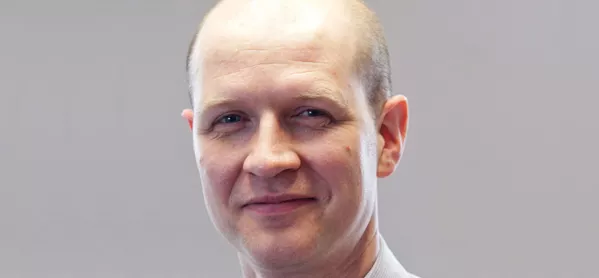- Home
- Imagine a land where everyone loves teachers
Imagine a land where everyone loves teachers

Finland is a lot like Scotland. Both are on the cold, northern fringes of Europe. Both have populations of around 5 million, concentrated in a narrow belt in the south and set against expanses of wilderness.
The histories of both countries are defined by often fractious relationships with their larger neighbours (although Finland will next year celebrate 100 years of independence). And both store quite a bit of pride in their country’s education system.
But for all we might talk up schooling as an intrinsic part of our national story, going back to John Knox’s 16th-century drive for a school in every parish, we don’t love our education system like the Finns love theirs.
Finland is a country with an often-troubled history. Part of Sweden for nearly 700 years, before a century of rule by the Russian Empire, independence in 1917 led to a civil war. In 1939-40, after invasion by the Soviet Union, up to 168,000 died in the Winter War. Later, the Cold War-chilled Finland - which has an 833-mile border with Russia - more than most countries. Tensions continue: when I visited Finland last month for a series of lectures and visits, Vladimir Putin’s foreign policy was never far from anyone’s thoughts.
While some countries bash teachers, the Finns trust theirs to get on with the job
So, in a 2012 survey of what Finns viewed as the most important events in their history, what came top? None of these tumultuous events even came close: the establishment of comprehensive schools in the 1970s won hands-down, far ahead of any conflict, and miles clear of universal suffrage, accession to the EU, the creation of the welfare state and election of the first female president.
Finns have huge trust in schools and teachers, but this is explained by more than just administrative and pedagogical competence: education is intertwined with Finnish identity. One special adviser to the Finnish government has a go-to presentation on the education system in which he says Finns see it as “their beloved”. There are historical reasons for such affection. The country’s Lutheran tradition - with the message that all are equal before God and all need to learn - has apparently helped to make education and equality defining characteristics of Finnish culture.
But Finns don’t tend to get carried away, and even their well-documented success in the Programme for International Student Assessment has been viewed with healthy scepticism.
Professor Pasi Sahlberg, a Finnish expert on education now advising the Scottish government through its International Council of Education Advisers, stressed that his country’s education system is by no means perfect and, in some important regards, it lags behind Scotland’s.
But whatever the flaws, while some countries routinely bash their teachers, the Finns trust theirs to get on with the job. There is no inspection regime, no obsession with fluctuating exam pass rates - Sahlberg is struck by how many numbers and percentages he sees on Scottish school walls, something he says that he would never find in Finland - and the new curriculum that has just come into place is more fine-tuning than radical departure.
Other countries may profess pride in schools and teachers, but mantras such as “education, education, education” and “no child left behind” often ring hollow with hindsight. The Finns may not quite have the amazing education system they are often credited with - but they really mean it when they say that education matters above all else.
To read more on the future of Finland’s education system, pick up next week’s TESS
Register with Tes and you can read two free articles every month plus you'll have access to our range of award-winning newsletters.
Keep reading with our special offer!
You’ve reached your limit of free articles this month.
- Unlimited access to all Tes magazine content
- Save your favourite articles and gift them to your colleagues
- Exclusive subscriber-only stories
- Over 200,000 archived articles
- Unlimited access to all Tes magazine content
- Save your favourite articles and gift them to your colleagues
- Exclusive subscriber-only stories
- Over 200,000 archived articles



